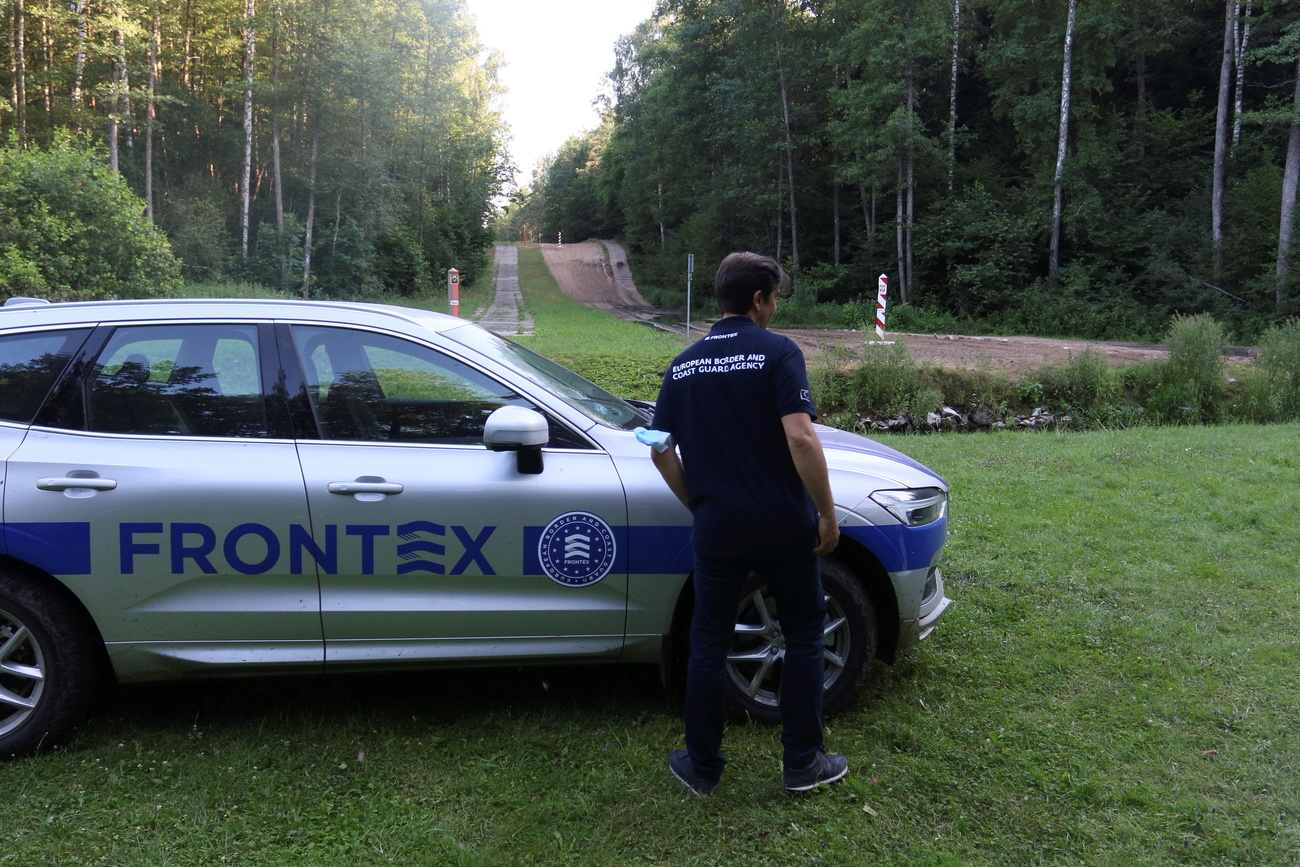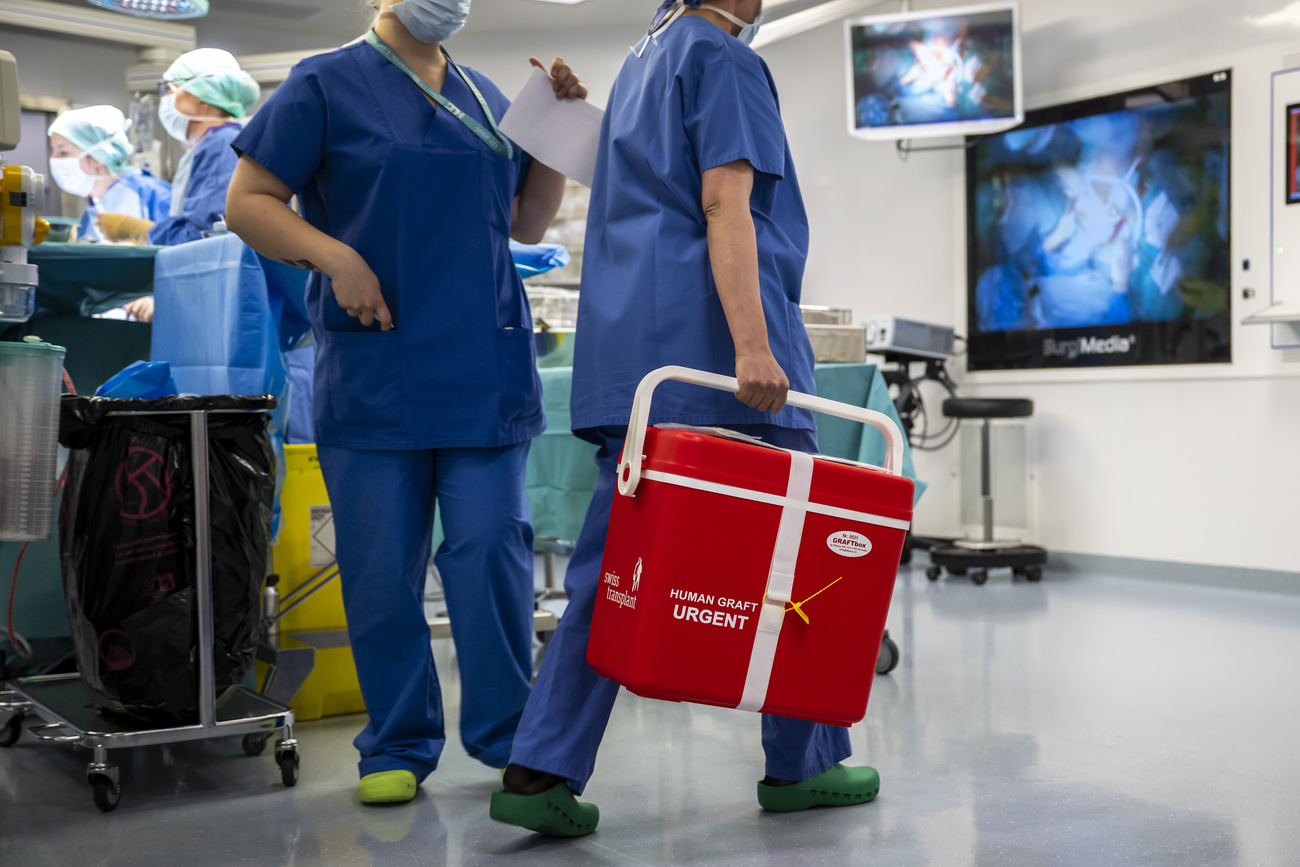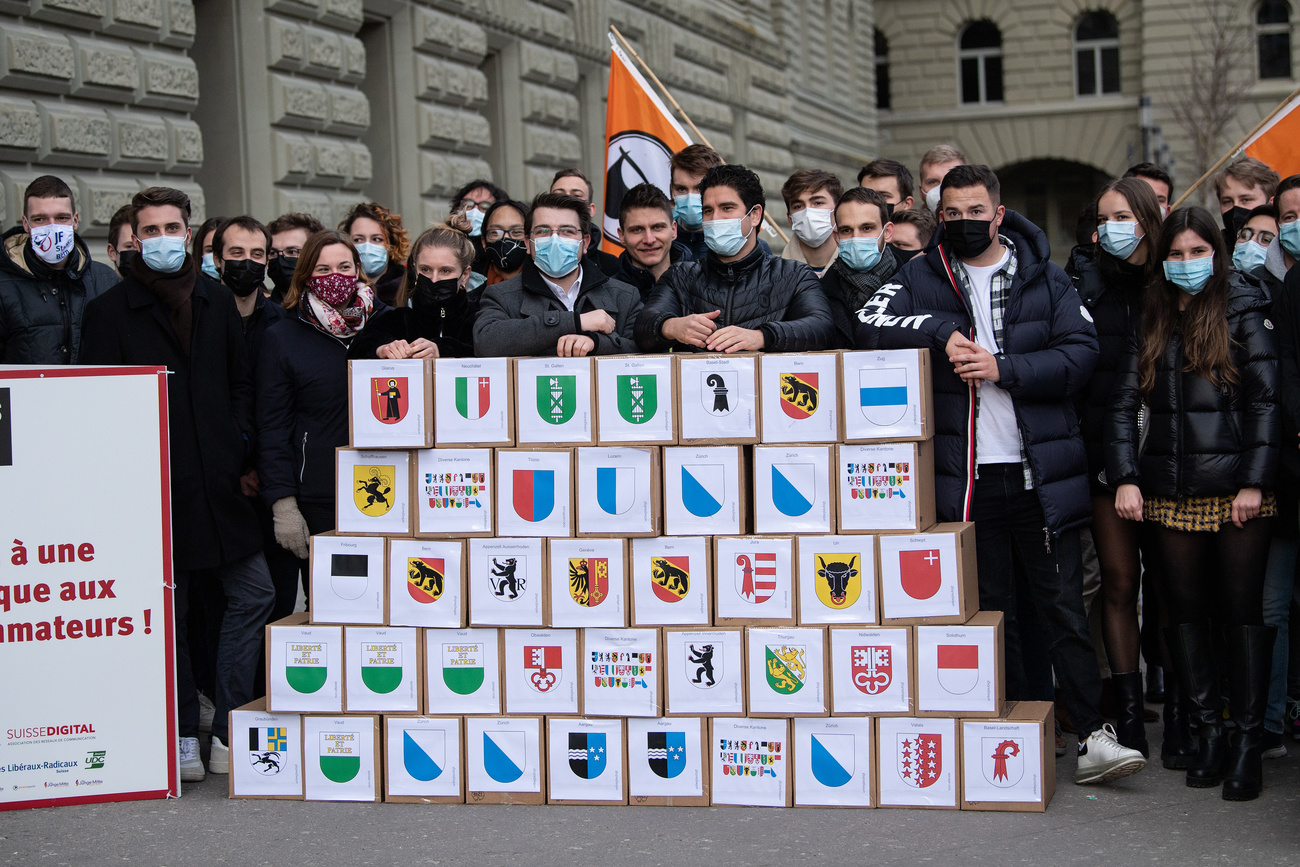May vote poll: Swiss levy on streaming giants could fail

A planned levy on international streaming platforms in Switzerland has come under increased pressure ahead of a referendum on the Swiss film law.
The latest opinion poll published ten days ahead of a nationwide vote on the issue found opponents narrowing the margin to 12% compared with a first survey conducted in March.
Two other issues on the agenda on May 15 – an increase in Switzerland’s financial contribution to the European Frontex border agency as well as the introduction of presumed consent for organ donations – appear to enjoy stable support among the respondents in the poll.
It was carried out by the leading GfS Bern research institute on behalf of the Swiss Broadcasting Corporation.
Pollsters expect a close race over a 4% levy international streaming platforms, such as Netflix and Disney, would have to pay on their revenue from Switzerland. The levy, estimated at more than CHF12 million ($12.3 million) annually is destined for the Swiss audiovisual industry.
“There is a trend towards a No-majority, but the debate has failed to take off so far,” says political scientist Lukas Golder, the co-director of the GfS Bern instituteExternal link.
The current majority of 56% in favour of the legal amendment could dwindle, resulting in a close result either way, he added.
Golder says the debate about the reform has remained somehow abstract, lacking intensity and neither opponents nor supporters really succeeded in engaging voters.
Three youth wings of political parties from the right to the centre forced a referendum collecting enough signatures to challenge a parliamentary decision on the Swiss film law.
Golder notes that the respondents in French-speaking Switzerland tend to support state backing for the Swiss media industry, while advocates of free market economy appear to have the upper hand among the main German-speaking community.
“Additional efforts will be necessary to sway the outcome of the vote,” says Golder. “Our poll found no obvious indications so it remains difficult to say which side will prevail in the end.”
Organ donations: consolidated
Pollsters have little doubt about the other two issues on the ballot sheet.
The final survey found advocates of reversing the principle of consent for organ donations consolidating their lead over the referendum committee trying to veto a parliamentary proposal.
The No camp, supported by the right-wing People’s Party and critics of the government, hasn’t been able to win much ground.
This is also due to the fact that parliament put forward an amendment for an extended explicit consent to block a more radical people’s initiative, according to Golder.
The compromise by parliament takes into account possible concerns about organ donations by a deceased person.
Frontex and the war
A clear result is expected in the vote about a plan to boost the Swiss contribution to the European Union’s Frontex border agency.
“Anything else but a straight victory for the government and parliament would be a huge surprise,” says Golder.
The growing margin between opponents and supporters over the past four weeks is due to People’s Party grassroots willing to vote for the government.
The political left, which forced the referendum, is not united in its fight against Frontex. Despite possible reservations, most citizens agree on the usefulness of the agency to fight crime and illegal immigration, according to Golder.
The campaigns ahead of the May 15 vote have been overshadowed by the Russian invasion of Ukraine absorbing public attention to a large extent.
“The war did certainly not help to have intense debates on any of the issues on the ballot sheet,” Golder says.
His institute expects voter turnout to be drop to levels slightly below average due to “voter fatigue” following last year’s unusually emotional campaigns about the government’s health, climate and environmental policies and the Covid-19 pandemic.
Pollsters interviewed 6,315 Swiss citizens from all language regions across the country and among the expatriate Swiss community for the second of two nationwide surveys.
The survey is based on online responses as well as telephone interviews, both with fixed line and mobile phone users, and was carried out from April 20-27.
The margin of error is 2.8%.
The poll was commissioned by the Swiss Broadcasting Corporation (SBC) – swissinfo.ch’s parent company – and carried out by the GfS Bern research institute.

In compliance with the JTI standards
More: SWI swissinfo.ch certified by the Journalism Trust Initiative





You can find an overview of ongoing debates with our journalists here. Please join us!
If you want to start a conversation about a topic raised in this article or want to report factual errors, email us at english@swissinfo.ch.